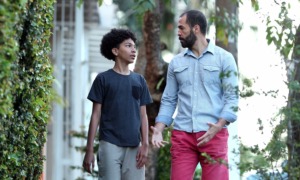
kikovic/Shutterstock
.
Federal funding for after-school programs is on the chopping block once again. President Donald Trump’s proposed budget for fiscal year 2020 would cut the $1.2 billion that provides after-school programs for nearly 2 million mostly low-income kids across the nation.
For the past two years it’s been a rite of spring for Trump to propose killing the program, for advocates to defend it and for Congress to appropriate the funds anyway.
But nothing is entirely predictable.
“Things are in flux so much in the government that we are definitely worried,” said Bridget Laird, chief executive officer of Wings for Kids, which runs nine after-school programs in high-poverty elementary schools in Georgia and the Carolinas.
All nine programs rely on the federal funding, known as the 21st Century Community Learning Centers initiative.
“The impact on us would be devastating,” she said. Wings for Kids focuses on cultivating the social and emotional skills that help children attain success in work and life, such as managing emotions, making good decisions and building healthy relationships. Children in poverty face greater adversity and particularly benefit from these skills, according to the organization.
Wings for Kids has been cited as a “best practice” organization by the National Institute of Out-of-School Time, the National Association of Elementary School Principals and the Character Education Partnership.
21st Century funds support after-school and summer learning in all 50 states, Puerto Rico and the District of Columbia. For example, 149,000 children in California and 114,000 in Texas are served by 21st Century programs.
Washington state receives nearly $17 million and serves 15,000 children, said David Beard, policy and advocacy director for School’s Out Washington. The majority of kids in Washington’s 21st Century program are in rural areas of the state, and if funding is cut some areas would lose the only after-school program they have, he said.
“We are ringing the alarm bells loudly,” he said.
Nearly 14 million children live in poverty in the United States, according to the Annie E. Casey Foundation Kids Count data center.
The cost of after-school and summer programs is out of reach for many families, yet they need it so their children are supervised, wrote Marissa Castro Mikoy, executive director of After-School All-Stars North Texas, in The Hill last year. Kids in after-school programs get the support that makes it more likely they will graduate from high school and get post-secondary education — and ultimately this strengthens their communities, she wrote.
21st Century funding has had wide bipartisan support in Congress, said Erik Peterson, vice president of policy for the advocacy group the Afterschool Alliance.
These federal funds also prime the pump for state and local money to flow; many 21st Century programs are created in partnership with local agencies and community organizations.
Proponents of after-school funding are initiating a campaign once again to urge Congress to override the president’s proposed cut.
A broad group of advocates, including pediatricians, mayors and parents “need to step up again,” Peterson said.





























